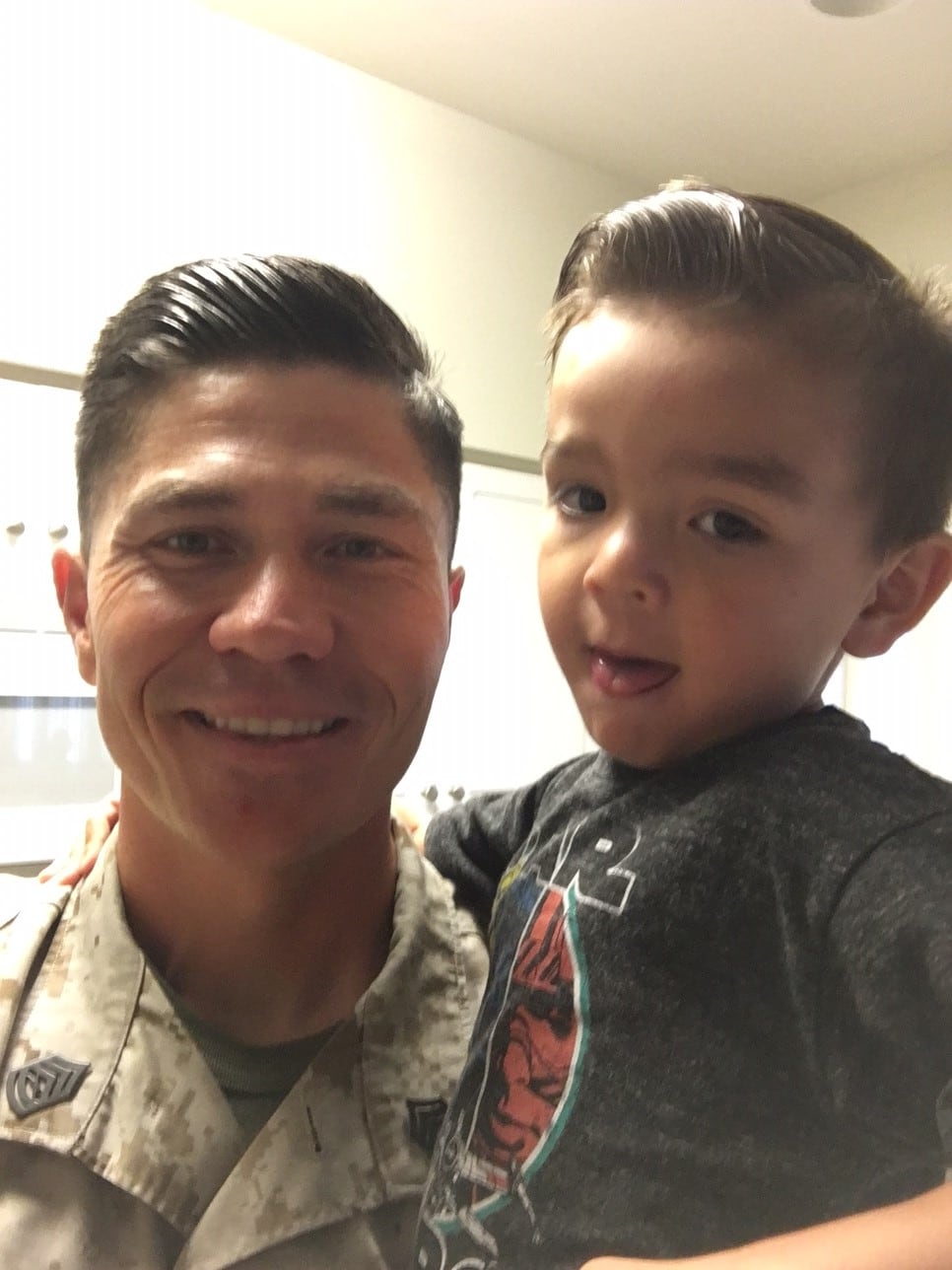Active-duty Marine. Husband. Father of three. Attorney.
Gunnery Sgt. Frank Daugherty isn't satisfied with the status quo as a Marine. Daugherty hits 17 years in the Marine Corps in December, and he wants to make sure he can be just as successful after he separates in a few years.
"At the end of my first enlistment, I had just come back from Operation Enduring Freedom," said Daugherty, who's an amphibious assault crewman at Camp Pendleton, California. "I was looking to get out and go back to Kentucky as a corporal, but I wasn't qualified to do anything that I wasn't qualified to do before joining the Marine Corps."
Daugherty re-enlisted but knew he didn't want to be scrambling when he officially left the service. His post-military plan didn't come together until he met his wife, who is a corporate accountant.
"She was pretty successful, and I was way behind the power curve in life," Daugherty said. "She really pushed me to go back to school."
The gunny took the Graduate Management Admission Test and earned his MBA, but he realized he didn't enjoy studying business. He looked into law school and found California Southern University offered online law degrees. He enrolled in the juris doctor degree program, which is primarily for students looking to practice law as an attorney.
Daugherty said he was told only 17 percent of students pass the first year.
"It started off as an almost negative experience" because he was told to not be surprised if he didn't succeed at first.
Not only did Daugherty pass the first year, but he also passed the California Bar exam on his first attempt in February.

Gunnery Sgt. Frank Daugherty said he wanted to make sure his relationship with his children didn't suffer while he was in law school.
Photo Credit: Courtesy of Gunnery Sgt. Frank Daugherty
The road there
Now a licensed attorney, Daugherty said it was difficult trying to balance law school, his job as an active-duty Marine, and his family.
"It was really stressful," said Daugherty, who has three children ages 4, 6 and 9, plus a niece who lives with them.
Since he didn't want his relationships with his children to suffer, he focused on studying in the mornings, during his lunch break and after the kids were asleep. He said it helped to break up the assignments that way.
"I would just break it down and dedicate three hours a day but in chunks for three assignments," Daugherty said.
He also dedicated much of his weekend time to studying.
"I don't have very many hobbies," he joked.
His work in the Marine Corps hasn't changed since he became an attorney, but he said he's able to give back in a different way.
"I get a lot of people who come to ask me for help," Daugherty said. "I really enjoy helping people."
No excuses
Daugherty's advice for service members who want to pursue higher education is to be honest with themselves about how much time they have.
"If you have an hour to play on Instagram or Snapchat, you have time" to work toward a goal, he said.
Instead of waiting to use the GI Bill after separating, Daugherty encourages using it while still serving.
"If you're going to get out to use this stipend, why don't you graduate college and get paid?" he said. "After all these years, I still have four months of my GI Bill left. Don't let your benefits go away."
He also doesn't want service members to think they have a limited number of options.
"A lot of people get stuck" focusing on which schools they can attend or how difficult it will be.
"Don't be intimidated," he said. "My best advice: Just do it."
With the MBA and law degree, Daugherty said he doesn't have the anxiety he had when thought about separating as a younger man.
"I can go anywhere I want and work anywhere I want and make a reasonable living," he said. "It's a mental safety net that lets me sleep at night."
Charlsy Panzino covers veterans education, employment and transition issues, as well as travel, entertainment and fitness. Email her at cpanzino@militarytimes.com.





